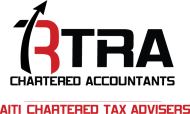Benefits in kind are benefits which employees or directors receive from their employment but which are not included in their salary. They are sometimes called ‘perks’ or ‘fringe benefits’.
They include things like company cars, private medical insurance paid for by the employer and low interest loans. Where benefits in kind are taxable, tax is paid on the taxable value of the benefit.
Revenue generally define this as the cash equivalent value. This is usually the amount it costs your employer to provide you with the benefit. Special rules apply to the following benefits-in-kind:
- 1. Company Vehicles
- 2. Loans
- 3. Provision of living accommodation.
PAYE, PRSI and the USC must be operated by employers in respect of the taxable value of most benefits-in-kind and other non-cash benefits provided by them for their employees. Benefits that are exempt from tax or can be received tax efficiently.
The list below is not an exhaustive one. Also conditions generally apply to exemptions and should therefore be checked with the Revenue Commissioners.
- 1. Small benefits(see further details below)
- 2. Cycle to Work Scheme covering bicycles and safety equipment to €1k
- 3. Certain share and approved profit sharing schemes
- 4. Provision of bus/train passes for one month or more
- 5. Canteen facilities
- 6. Reimbursement of expenses necessarily incurred in the course of employment
- 7. Some accommodation provision
- 8. Lump sum and certain redundancy payments
- 9. Working clothes
- 10. Non-cash personal gifts not related to employment
- 11. Employer’s contribution to statutory or revenue approved pension schemes.
- 12. Mobile telephones, computer equipment and home high-speed internet connections where those benefits are provided for business use. (Private use is incidental.)
- 13. Private use of company van which is essentially for the purposes of employee’s work and where there is an employer requirement to bring the van home and where other private use is prohibited and the employee spends most of their working time away from the workplace to which they are attached.
Revenue provide a very detailed guide on the main benefits-in-kind and other non-cash benefits. The guide assists employers in determining –
- The amounts to be taken into account in calculating the PAYE, PRSI and USC liabilities
- The pay period(s) in which to take such amounts into account
Small Benefits
Where an employer provides an employee/director with a small benefit, that is, a benefit with a value not exceeding €500, then PAYE, USC and PRSI need not be applied to that benefit.
This treatment does not apply to cash payments, which are taxable in full. No more than one such benefit given to an employee in a tax year will qualify for such treatment. Where a benefit exceeds €500 in value the full value of the benefit is taxable.
***
For related enquiries, further clarification and assistance with Tax matters contact Joe Cunnane at TRA Professional


